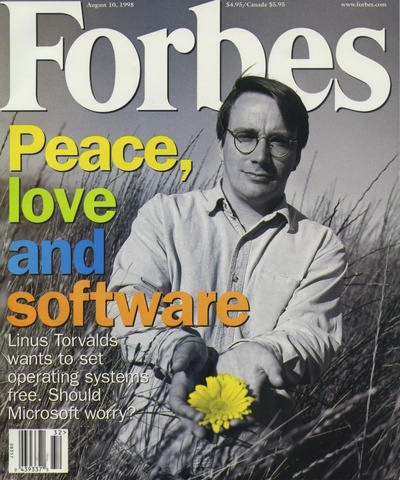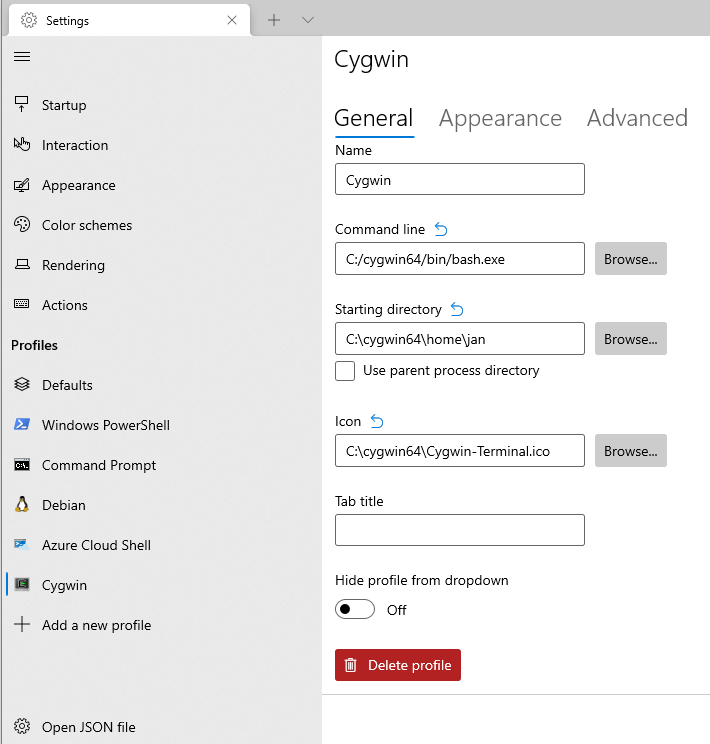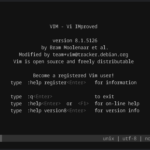This book had been sitting on my to-read list for way too long! But I finally found a second hand copy, so here we go!
You could say this is the official autobiography of Linus Torvalds, the creator of Linux. The Operating System that changed the world! You can wake me up in the middle of the night to talk about operating systems. So this book is right up my alley.
It’s funny to think that more time has passed since this book came out (16 years), than the time there was between the birth of Linux and the release of the book (10 years). So an update would be welcome, however history = history and this book does a good job of documenting the rise of Linux. Even in 2001 it was clear that Linux was a huge force to be reckoned with and that it would only grow bigger from there. But I think few would suspect Linux would be the most used operating system in the world (largely) because of smartphones i.e. Android. Because people were still talking about the desktop in 2001.

Celeb life.
The book is structured around alternating chapters written by Linus himself and the writer David Diamond. It follows a chronological timeline. From young Linus to Linux, to underground celebrity status, to bonafide celebrity, to riches and world domination. The story is told in either conversation form between David and Linus or just plain old retelling facts. Because in 2001 things were relatively ‘fresh’ the book has some nice intricate details. Details that would probably be lost when you write a book about this subject 20 years from now. And that is probably what I liked most about it. I was familiar with most of the history, but this book does a great job of filling in the details to get a complete picture from a first degree account. Also there is quit a bit of room towards the end where Linus shares his thoughts on Intellectual Property, copyright and becoming rich (not Bill Gates rich, but still rich). Which was really interesting!
Here are some take-aways from the book:
- Linus is of course a programming genius. He wrote Linus when he was around 21. I would guess only a handful of people in the world were able to do what he did. And he did it at a young age. (He probably wouldn’t like this comparison: but it reminded me a lot of Bill Gates who wrote a BASIC interpreter when he was even younger.)
- But the genius also manifests itself in the ability to make good design calls (very early on). I would even go so far as to state that his programming ability is surpassed by his talent to make the right choice (design, technical etc.)
- He has proven this again, by unleashing git (the software versioning tool) to the world in 2005. Which made quite an impact on software development in general (e.g. it gave rise to Github) So not only did he start one of the first software revolutions, he also started the second! With git he doubled down on demonstrating the knack for making the right choices.
- Even though he famously fell out with professor Tanenbaum, I love that he still states Tanenbaums’ book Operating Systems Design and Implementation as the book that changed his life.
- He comes from a journalist family who were straight-up communist sympathizers and part of a Finnish minority that speaks Swedish. They also dragged young Linus to Moscow on occasion. And his grandfather was bit of a famous poet in Finland.
- With this communist background in mind it is funny to think he is very much a pragmatist and not an idealist. But maybe exactly because of this. It’s a very conscious decision and he seems to have thought about it a lot and it permeates everything he does.
- There is a lot of self-deprecating humor in this book.
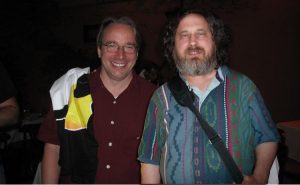
Linus Torvalds and Richard Stallman
- There are quite a few sexual references. Linus starts the book with stating his view on the meaning of life: using sex as example.
- The Tanenbaum discussion was about technical choices. The success of Linux sort of gave Linus the upper hand in the discussion. I think this irked Tanenbaum but I also suspect Tanenbaum felt that if he had just released his OS Minix to the world in the same manner Linus had, we probably wouldn’t have had Linux.
- Stallman gave a talk at Linus’ university about GNU and this led to Linus choosing GPL as the license. And of course gcc was the programming language Linux was written in (developed by Stallman).
- And this is key, Linus acknowledges this, his project came at the exact right time. A year later and someone else would have probably already done it. Or we would be all be using *BSD (who were still fighting other battles). A year early and no-one would have batted an eye, because too few people online were around to notice.
- So the timing consist of 3 factors coming together: hence the word timing. The GNU license (invented by Stallman), the availability of cheap 386 processors and the internet. Take away either one and things would be different.
- Most of all I think that the internet was key, because Linus found his co-creators there and feedback. But also because Linux became the de facto operating system for internet servers and was born around the same time the www was born. This is no coincidence. The internet en Linux grew up together.
- Also one last point that proves he has good gut feeling, in 2001 he predicted the ubiquity of the smartphone:
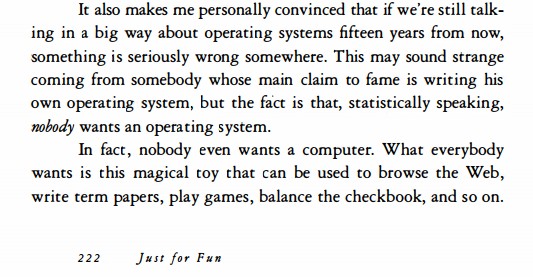

The title of the book is ‘Just for Fun’. And it is written with room for jokes and lighthearted thoughts. But there is also plenty of serious thought on ideals and pragmatism. But fun is the general theme throughout Linus’ life and the development of Linux. The fun that you get from following your curiosity, working hard on making it happen, and caring about what you do. The pragmatic approach of Linus to everything he does seems to create a sense of flow and he follows that flow and has fun with it. This is also backed by how an enormous project like the Linux kernel, which is the biggest software project in the world, is managed. The loose structure that dictates the development comes from flow.
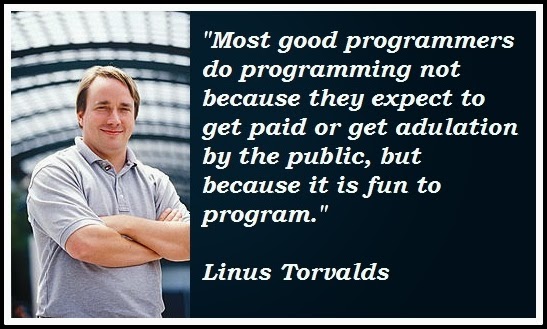
So all in all it’s a very fun book to read! Even if it’s from 2001 and a lot has happened since. I think there could be an updated version. Or you could ask yourself: “who, in 2017, is the equivalent of 1991 Torvalds?”. So, whose biography will we be reading in 10 years time? My money is on Vitalik Buterin (literally, I own Ethereum). He is a current day one-of-a-kind genius whose technology will probably change the world. Get it?
